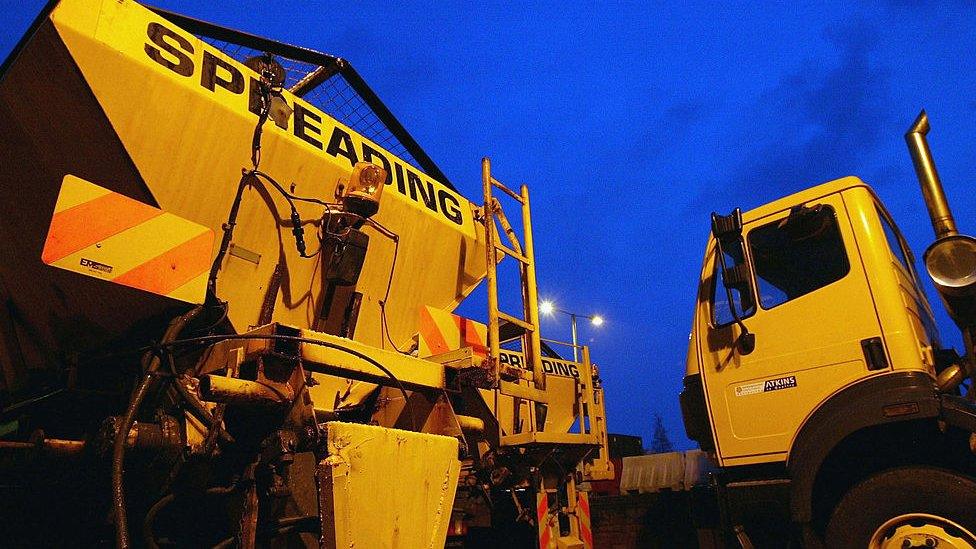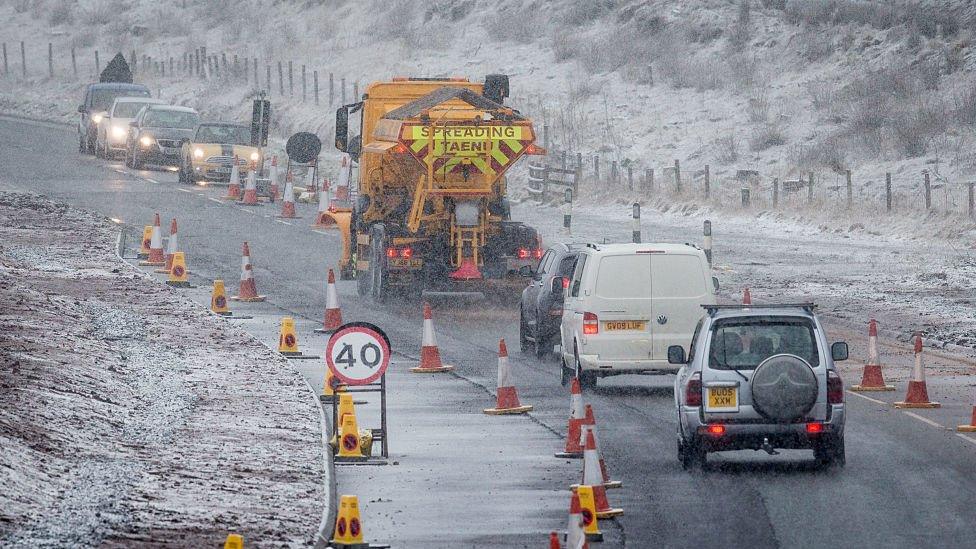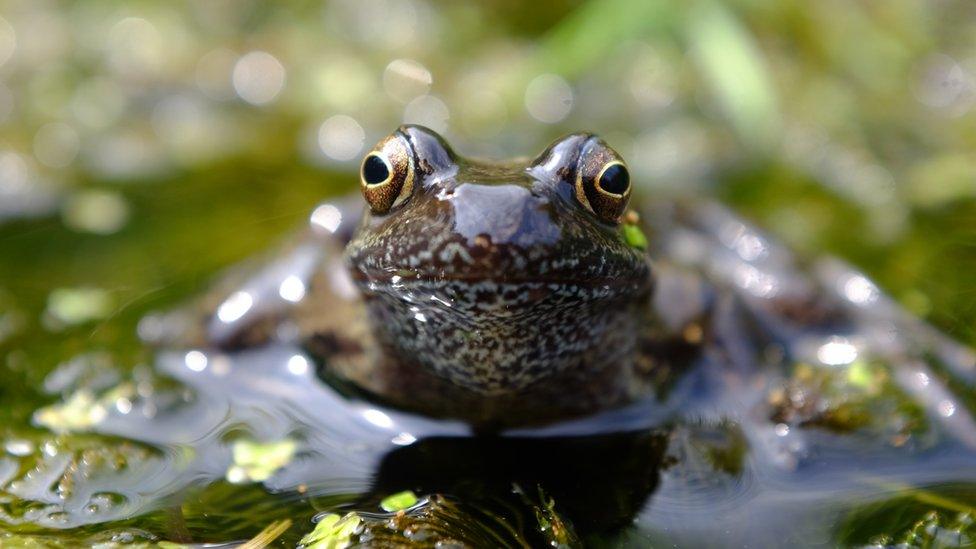Why is there grit on roads and does it harm the environment?
- Published
- comments

In winter, when it gets really cold, roads are often covered in something called grit.
You might've seen big machines on the road that say 'spreading' on them, and wondered what exactly they're doing!
They're spreading grit on the roads, to melt frost and ice to make it easier and safer for cars to drive around.
But what is grit? Why are roads covered in it and does it harm the environment?
More of your questions answered!
What is grit?
Grit is a type of salt - but it's nothing like the type that's used in our food!
It's made from crushed rock salt that's carved out of underground mines, it's brownish in colour and looks a bit like gravel.
Why do we grit roads?

During the winter months, snow and ice can make driving conditions a bit dangerous.
When ice forms on a road it makes the surface slippery, so it's hard for the wheels on a car to grip on to the road surface.
Putting grit down stops ice and snow from forming and causes existing ice or snow to melt - so there are no slippery surfaces, and cars can drive on them!
Does it harm the environment?

Even though grit helps the conditions on the roads, there's more research being done about how it might be harmful to the environment.
Dr Dan Forman is a lecturer at Swansea University, he says things like amphibians and plants could be vulnerable to the effect of grit.
Frogs and toads live in water and the salt can spread to their homes and can affect their environment.

Plants usually seen on the coast, such as wild carrot, are growing next to roads inland, Dr Forman says
The grit can also affect plants that often grow on the sides of roads.
Dr Forman said the salt has been changing the soil and making it a bit more difficult for the plants to grow and photosynthesise.
He said the salt has been harmful to wildlife, and alternatives need to be explored.
Dr Forman is a lecturer at a university in Wales, and the Welsh Government responded to his concerns.
They said there is "no current compelling argument" that the amount of salt currently used for de-icing damages the environment.
- Published25 March 2019

- Published31 July 2019

